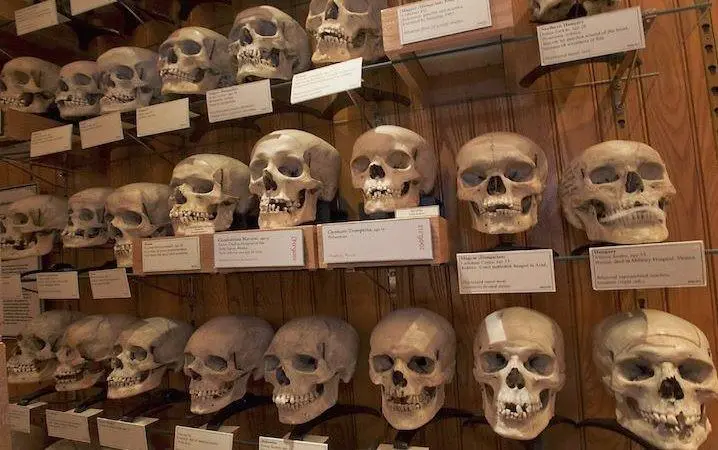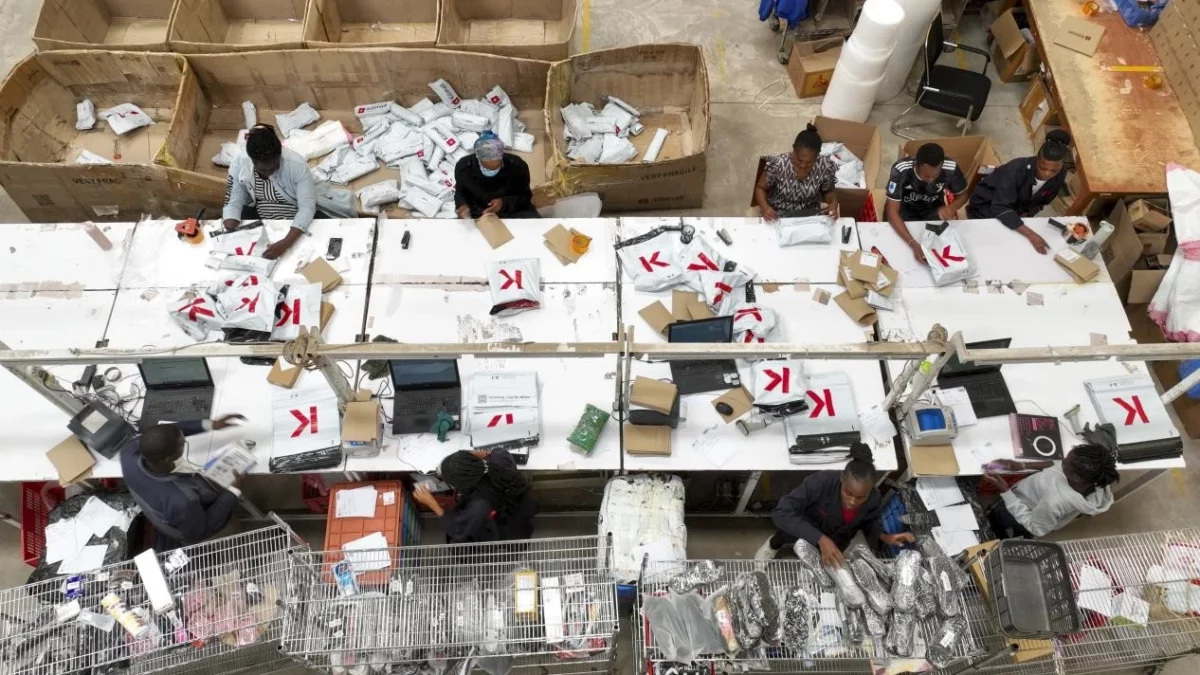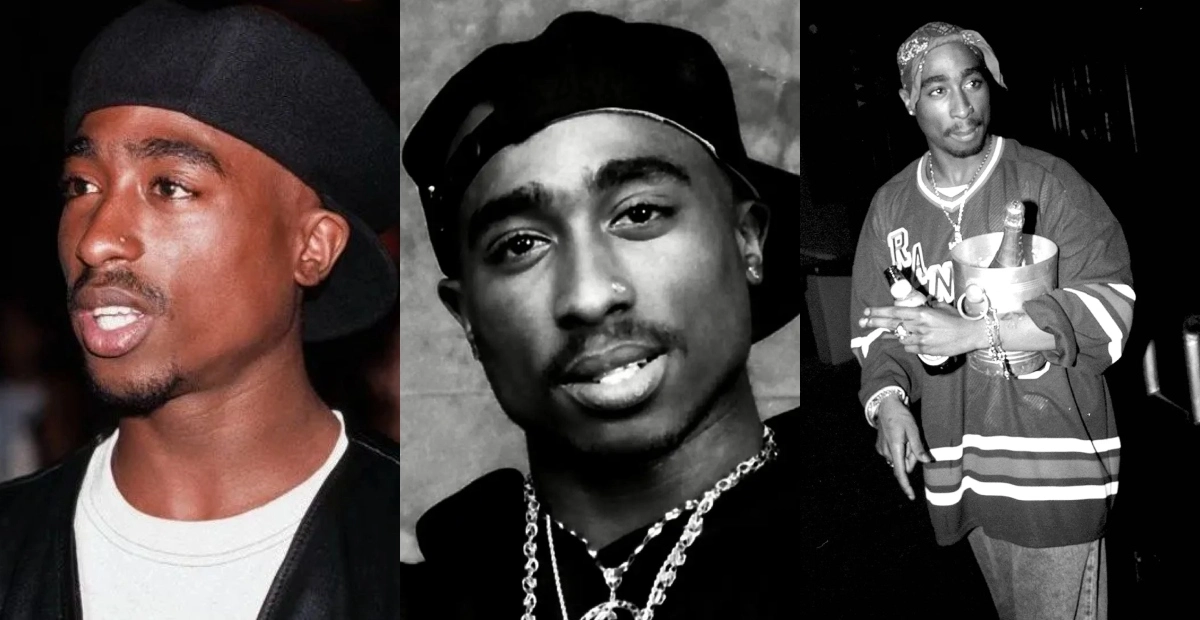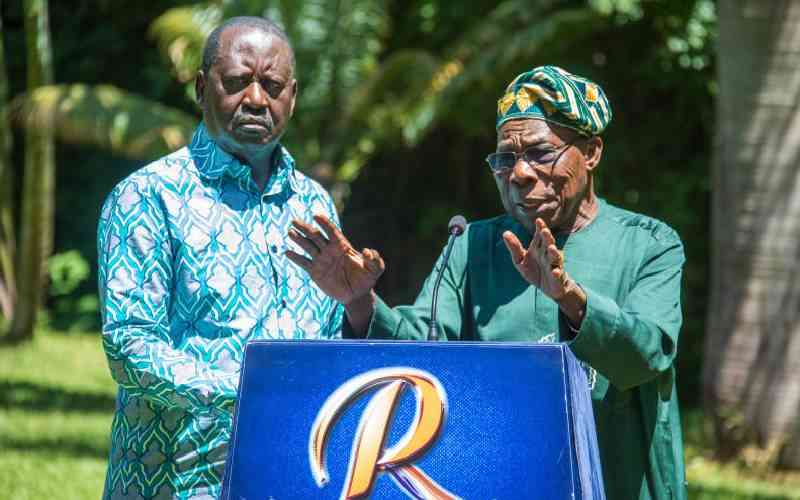In a discovery believed as a “small miracle,” Berlin’s Museum of Prehistory and Early History has revealed that DNA analysis has established a clear link between skulls stolen during the colonial era from Tanzania and living relatives in the present day.
This marks a significant step towards acknowledging and addressing the historical injustices of the colonial past.
Read also: Child with Fork Jembe embedded in skull dies at KNH
Since 2017, the Museum of Prehistory and Early History has been diligently researching approximately 1,100 skulls that originated from what was formerly known as German East Africa.
![A sample marked at the time the skulls were taken away to be added to von Luschan's collection. [Photo/ Staatliche Museen zu Berlin, Museum für Vor- und Frühgeschichte]](https://news.switchtv.ke/wp-content/uploads/2023/09/43261903_1004.webp)
The ultimate goal of this research is to facilitate the return of these remains to their respective countries.
In a statement released by the SPK museum authority, it was announced that DNA analysis has now made it possible to identify living descendants in Tanzania.
“The relatives and the government of Tanzania will now be informed as soon as possible,” the statement affirmed.
These skulls are part of a larger collection of around 7,700 specimens that the SPK acquired from Berlin’s Charite hospital in 2011.
Many of them were originally collected by Dr. Felix von Luschan, an anthropologist and doctor, during the period of German colonial rule.
![African people constructing a railway in Tanzania watched by German officials in 1910 during the era of colonial rule. [Photo/Getty Images]](https://news.switchtv.ke/wp-content/uploads/2023/09/1772.webp)
Tragically, these remains are believed to have been looted from cemeteries and burial sites across the world and brought to Germany for purportedly “scientific” experiments.
German East Africa encompassed regions that are now known as Burundi, Rwanda, mainland Tanzania, and part of Mozambique.
Among the extensive research conducted by the Museum of Prehistory and Early History, information on eight of the skulls was deemed sufficient to initiate a search for specific descendants, as confirmed by the SPK.
One of the skulls bore the title “Akida,” signifying its connection to a prominent adviser to Mangi Meli, a powerful leader of the Chagga people in the late 1800s.
Remarkably, a complete genetic match was found with a living descendant of Akida.
Additionally, two more of the eight examined DNA from the skulls displayed an almost complete match to descendants of the Chagga ethnic group.
![DNA From Stolen Skulls In Africa Matches Relatives In Tanzania. [Photo/Courtesy]](https://news.switchtv.ke/wp-content/uploads/2023/09/4a5bda93-acfd-3f42-9cb5-4142e6b479c8_850.webp)
Hermann Parzinger, President of the SPK, expressed his astonishment, saying, “Finding a match like this is a small miracle and will probably remain a rare case even despite the most meticulous provenance research.”
The interest in these skulls waned after World War I, and they were in a state of disrepair when acquired by the museum in 2011.
Before embarking on this research endeavor, the skulls underwent cleaning and conservation efforts.
Over the past two decades, Germany has been increasingly confronting its colonial legacy, acknowledging the crimes committed during that era.
Read also: Tanzania’s Economy Flourishes Amid Global Challenges
In particular, Germany has returned skulls and other human remains to Namibia, where it had sent them during the colonial period.
In 2021, Germany officially recognized its role in the genocide of indigenous Herero and Nama people in Namibia and pledged Ksh 156.5B in financial support to their descendants.
Subscribe to Switch TV
Germany has also initiated the return of cultural artifacts looted during the colonial period, including the Benin Bronzes, which are highly regarded works of African art that were dispersed among European museums.
This discovery of living relatives connected to stolen skulls serves as a reminder of the historical injustices inflicted during the colonial era and underscores the importance of acknowledging and redressing these past wrongs.




























